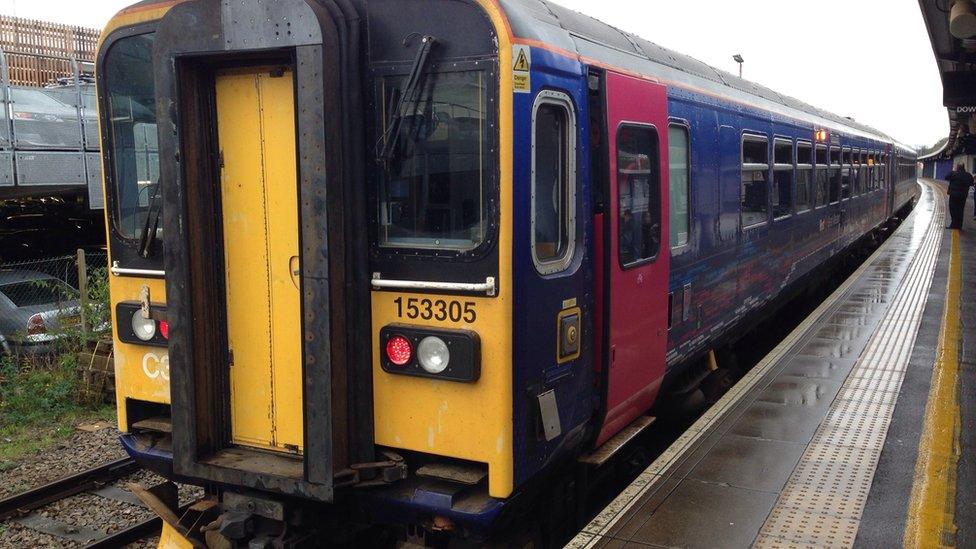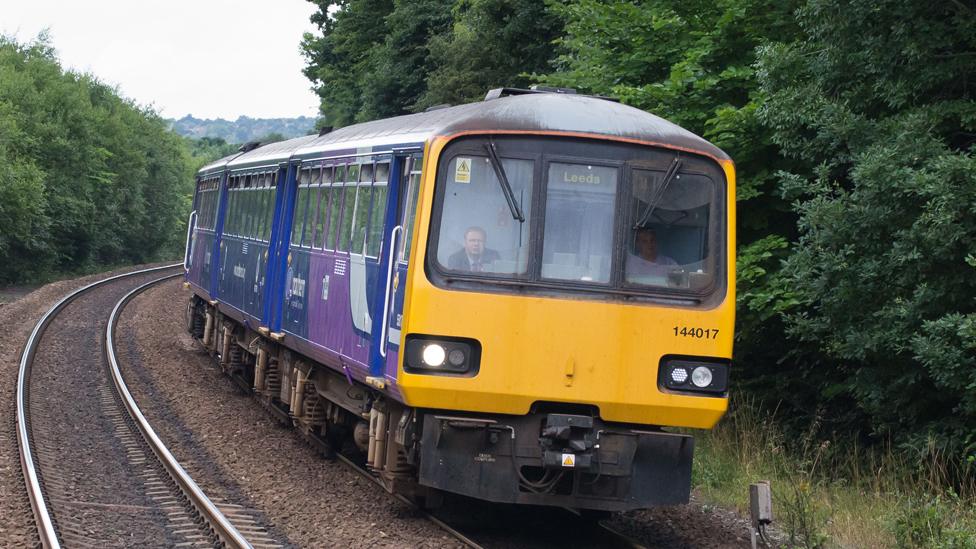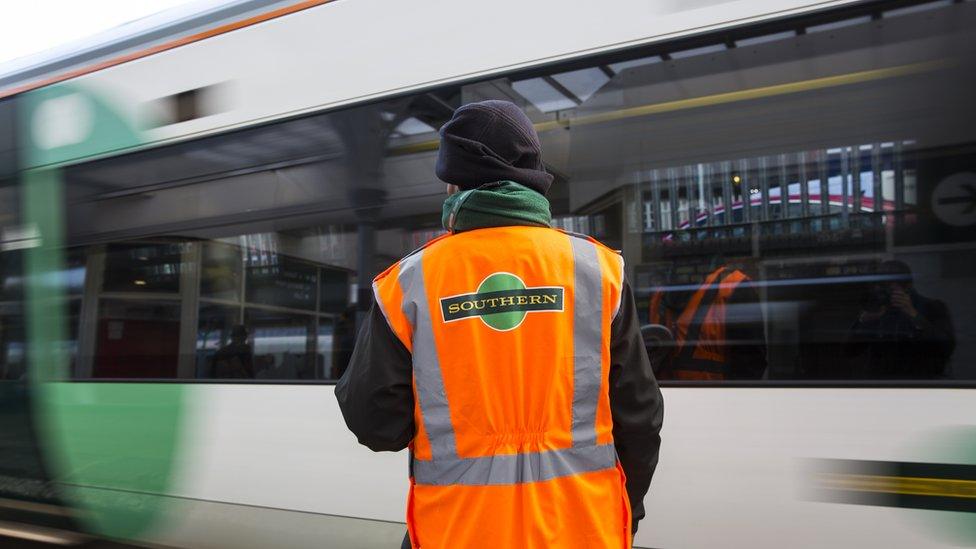Average age of British passenger trains is 21, study says
- Published

Great Western Railway has Britain's fourth oldest trains on its network
Trains on Britain's railways are 21 years old on average, an investigation by the Press Association has found.
It shows the age of British trains is at its oldest in at least 15 years. Rolling stock on the Caledonian Sleeper service is the oldest, at 41 years old.
TransPennine Express trains, in the north of England and Scotland, are the newest at just nine years old.
Campaigners said train quality was a "postcode lottery" but the government says it is rolling out new carriages.
The Office of Rail and Road (ORR) said older trains can result in less comfortable journeys, poorer reliability and worse performance than modern versions, although it also noted that older rolling stock can be refurbished.
'National disgrace'
Trains in London and south-east England are typically 19 years old, while regional services are 24 years old.
The latest ORR figures, external cover the period between January and March 2016, with records going back to July 2000.
Ed Cox, director of think-tank IPPR North, said it was a "national disgrace" and not what you see in Germany, France or Japan.
"It is little wonder that Britain lags behind other developed nations when commuters pay through the nose for decrepit trains," he added.
Mr Cox said areas outside London should be given powers to raise money to invest in transport and take back control over spending decisions.
The Rail Delivery Group, representing train companies, said it expects the average age of Britain's trains to drop to 16 years by 2019 due to the introduction of more than 4,500 new carriages.
More carriages promised
Lianna Etkind, of the Campaign for Better Transport, said the current age of trains "exemplifies the lack of public and passenger involvement" in the network.
She added: "More people than ever rely on the railways, they contribute a bigger percentage to running costs than ever, they pay more for their tickets than ever, and yet there is a postcode lottery in the kind of trains they are served by."
Last month, the National Audit Office warned that delays in electrification of the Great Western rail line could mean passengers in the North and West of England may have to wait longer for newer trains.
A Department for Transport spokesman said it was delivering the "biggest rail modernisation programme for over a century" rolling out more than 5,000 carriages over the next four years.
"Through rail franchising, we also expect the rail industry to come up with more proposals to introduce new carriages and improve services," he added.
This is the average age of rolling stock for train operators in Britain, according to the latest figures from the Office of Rail and Road:
1. Caledonian Sleeper (41 years)
2. Merseyrail (37 years)
3. TfL Rail (36 years)
4. Great Western Railway (33 years)
5. Virgin Trains East Coast (30 years)
6. Northern (27 years)
7. Greater Anglia (27 years)
8. Arriva Trains Wales (25 years)
9. East Midlands Trains (24 years)
10. South West Trains (20 years)
11. ScotRail (20 years)
12. Chiltern Railways (20 years)
13. Govia Thameslink Railway (19 years)
14. CrossCountry (18 years)
15. Southeastern (16 years)
16. c2c (15 years)
17. London Overground (14 years)
18. London Midland (12 years)
19. Virgin Trains West Coast (11 years)
20. TransPennine Express (nine years)
- Published7 March 2016

- Published7 November 2016
